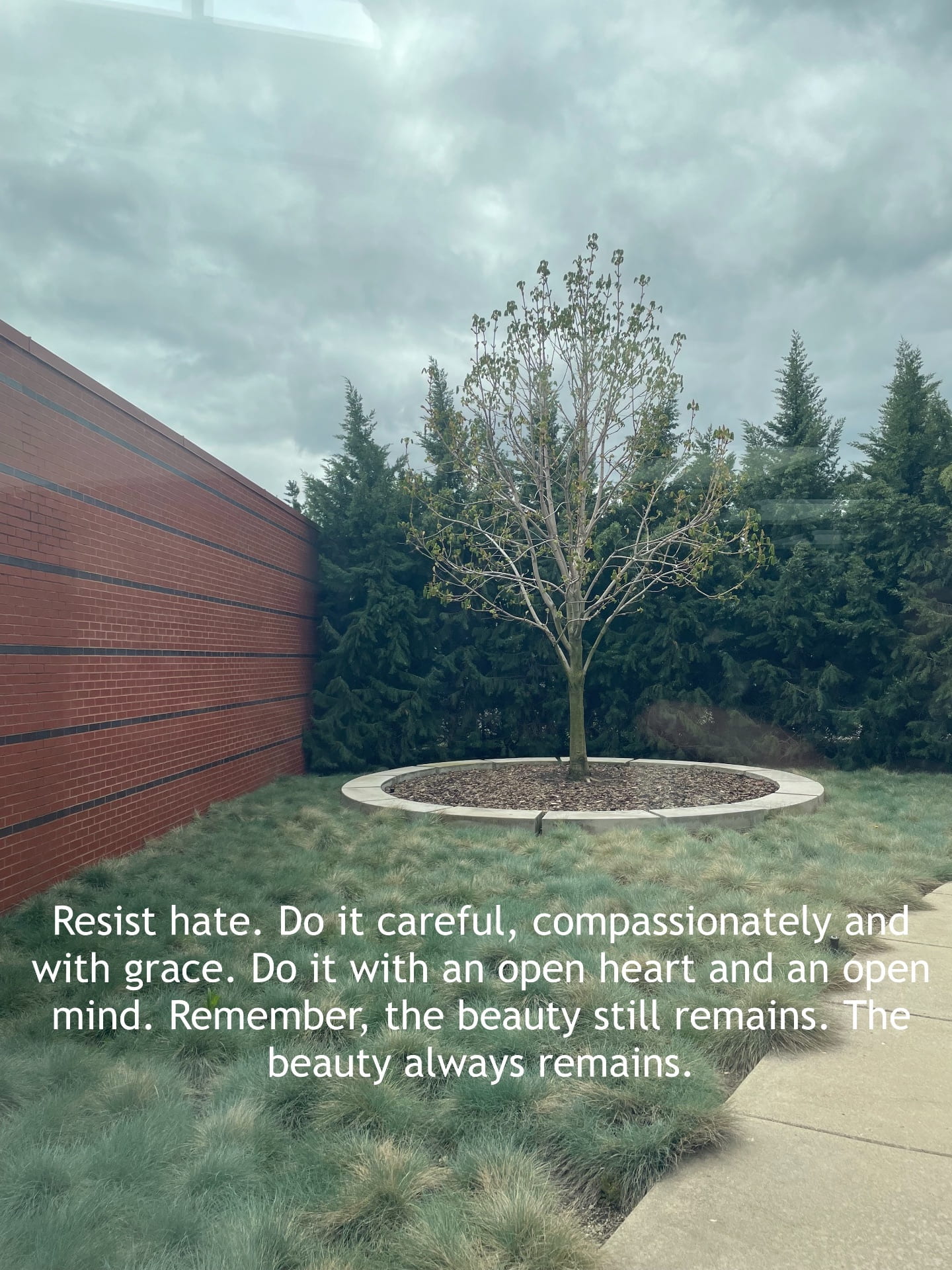Let’s Never Allow Hate To Be Normalized Again
Today I chaperoned our 13 year-old’s Sunday school field trip to the Holocaust Museum.
We gathered with the Rabbi to prep before leaving the synagogue. She came bearing food, as all good Rabbi’s do. A variety of tasty muffins helped set a foundation of comfort and a positive affects we took the moment to ground ourselves in contemplativeness (which I’m almost certain is a word).
The Rabbi asked us (adults and teens) to individually consider what it means to be Jewish today and throughout history. She told us there’s no right answer. She said each us would likely walk out of the museum with thoughts and feelings uniquely our own.
She suggested we talk with one another, with fiends and family, that we ask questions and that we take time to process. She urged us to be present and reflective.
As we drove I asked asked our son what he knew about the Holocaust, what he hoped to learn and how he felt. He was thoughtful in his response. He let me know he was looking forward to learning more. I’m very proud of the young man he’s become.
We didn’t talk much during the tour. Every so often he pointed to a picture or some other artifact, quietly and confidently letting me know about a realization he was having or an epiphany that had shifted his thinking. He was so mature and composed.
I tried to front load him as we approached each exhibit. I check in regarding his comfort level multiple times. He maintained that he was fine and wanted got keep going, keep learning, and continue looking through this lens of his own history.
Early propaganda, discrimination and hate, disbelief and confusion, policies of oppression, the ghettos, the uprisings, the many heroic “upstanders” who risked their lives to save the lives of others, the many who turned a blind eye, the parallels to so much tragedy still being perpetuated in our world today, the camps, and the chambers. This was a to contemplate; for both of us. We will undoubtedly be processing together for some time.
Our tour ended in front of Ann Frank’s picture and story. A story she lived she wrote down when she was just about his age.
In the short years she spent alive on this earth, Ann Frank somehow had the wisdom, insight and foresight to write of a chestnut tree outside her window, “From my favorite spot on the floor, I look up at the blue sky and the bare chestnut tree whose branches little raindrops shine, appearing like silver.”
We each have a unique vision of the world. A vision based on the complex amalgam of who we are, coupled with our lived experiences in any given moment.
Ann Frank’s vision…the beautiful, complex and simple way in which she saw the world, a world that we literally crumbling in and around her…was her hope. It was her guide and her salvation. It was her enduring and critical message.
She wrote, “What is done cannot be undone, but one can prevent it happening again. I don’t think of all the misery but of the beauty that still remains. Whoever is happy will make others happy too.”
Michigan’s Holocaust Museum was gifted a sapling from the very tree that stood within sight of Ann Frank’s “favorite spot on the floor.” That sapling grows in the museum’s courtyard. It’s pictured above.
Today, our son and I had a chance to look at that sapling. A living, connected artifact that had been looked at by Ann Frank. One that inspired her to the indelible outcomes she achieved.
I stared. I couldn’t look away. An electric current ran through my body. I was viscerally aware that the unthinkable tragic events of the Holocaust, while deeply important to myself, my child and every Jew, connected to our individual and collective identities, were among a myriad of similarly tragic events that continue to plague our word. Not the least of which (and uncontrollable present in my mind in that moment) is the history of slavery in the United States and the western world.
One of our community members asked the Rabbi what we can do to make sure this never happens again. With a deep breath and a comforting smile she told offend that we must never allow hate to be normalized. She said while we can’t each move mountains, when we each take care of pebbles in this way, the world can change.
So, next time you hear a discriminatory statement issued about a person with a disability, see a person being judged by the color of his skin, or witness someone suffering at the hands of others on the basis of her identity, do all you can to not let hate be normalized.
Resist hate. Do it careful, compassionately and with grace. Do it with an open heart and an open mind. Remember, the beauty still remains. The beauty always remains.
For our ancestors, for ourselves and for our children…for our history and for the future of our world, let’s never let hate be normalized again.
Live. Love. Listen. Learn. Lead. Thanks.

Thank you for this!